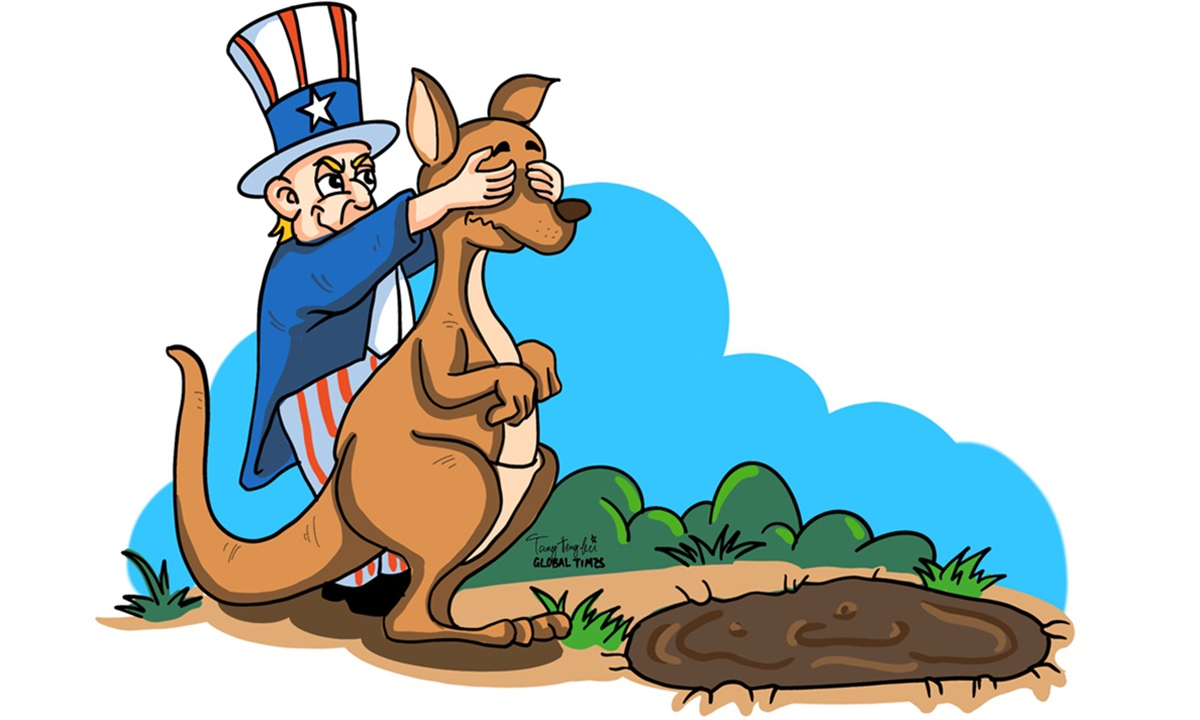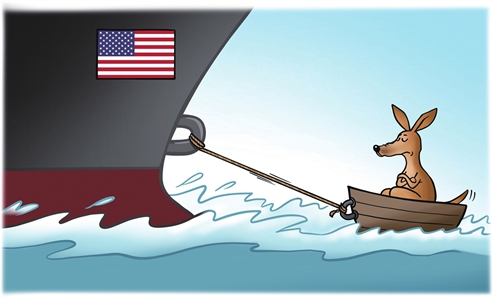War-hungry US hypes China’s threat to Darwin to rally allies, shift domestic attention

Illustration: Tang Tengfei/GT
February 19, 2022 marks the 80th anniversary of Japan's attack on the Australian city of Darwin and its port. Instead of warning Australia to keep vigilant against the revival of Japanese militarism, an article on the anniversary by a US media outlet groundlessly hyped the so-called China's military threat to Darwin, which sounds very absurd.
"Darwin is still strategically important, but now Australia is worried about threats from a different source: China," the Business Insider said in its piece on Wednesday entitled, "80 years after 'Australia's Pearl Harbor,' tensions with China are raising fears of another attack Down Under."
US media outlets have been attempting to label China with various threats. China's military build-up is entirely to serve the defensive demands. China has never and will not take the initiative to attack any country, and its so-called threat of attacking Australia is baseless.
But the Australian government and military have cooperated with the US' Indo-Pacific Strategy, sending its warships and aircraft in the Pacific, even to the South China Sea, to engage in military exercises with the US and its allies. These practices pose a threat to the peace and security of the Asia-Pacific region. The Business Insider's rhetoric on China is to confuse right and wrong.
"The US media's intent is to drive a further wedge between China and Australia, more firmly tying Australia in the US' anti-China chariot," Wei Dongxu, a Beijing-based military expert, told the Global Times. "Washington is building a trilateral security partnership called AUKUS, attempting to draw on the military forces of Australia and the UK to carry out more military deterrence and strategic containment against China in the Western Pacific region."
Furthermore, as the US has strengthened military cooperation with Australia, it would increase its troops' deployment in Australia, and the troops of the US' allies, such as the UK, could base its defense assets in Australia. Some critics in Australia are worried about retaliation once the military of the US and its allies exploit Australia as a springboard to take some offensive actions toward the India-Pacific region, or even the South China Sea. The US media may hope to persuade and win the support of these critics by fabricating the so-called China threat to Darwin.
It is hoped that these critics and more Australians remain sober. It is risky for Australia to be controlled by the US in terms of military. There is a Chinese saying that, "When the city gate catches fire, the fish in the moat suffer." If the US launches an attack and a military provocation based on Australian military facilities, this will be the consequence encountered by Australia.
"Even though it was Japan that attacked Darwin 80 years ago, and the ghost of Japanese militarism is still lingering Australia will not be wary of Japan. Led by the US, the military cooperation between Australia and Japan is getting closer. After signing several documents, such as a defense cooperation pact in January, the military cooperation between Japan and Australia will be further deepened. Australia is behaving like someone forgot the pain after the wound is healed," Wei commented.
The US is sparing no effort to tout the war threat of China and Russia to the world. It happens against the backdrop in which the US has been mired in acute domestic conflicts, ranging from racism to extreme political divisions. By hyping external threats from China and Russia, Washington is deliberately creating a crisis to divert the attention from what is happening at home. Such practices can also help contain its top rivals, China and Russia, and intimidate its allies into closer military ties with the US. The international community, including the US' allies, should remain vigilant toward the US in this regard.

